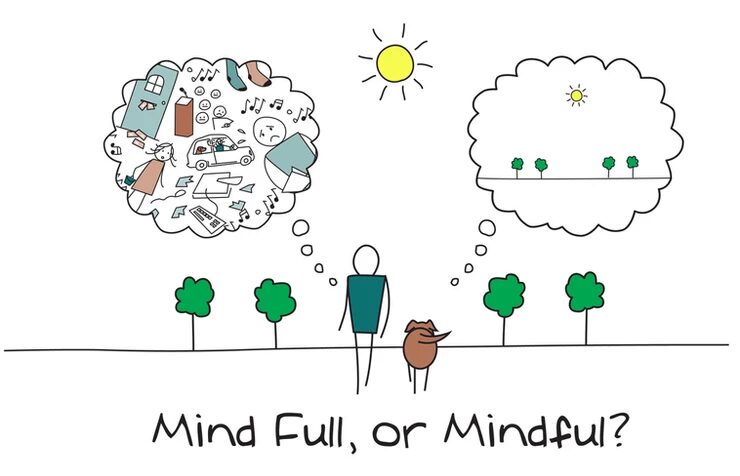
Mindfulness is the state of being fully present in the current moment while being aware of one’s internal and external experiences, thoughts, and feelings without judgment. Practicing mindfulness is about cultivating curiosity and approaching our experiences with acceptance and compassion.
Benefits of Mindfulness
According to the American Psychological Association, practicing mindfulness can:
- Reduce rumination (the act of obsessing over certain thoughts)
- Reduce stress
- Boost your working memory
- Improve ability to focus your attention & suppress distracting information
- Lessen emotional reactivity
- Increase cognitive flexibility
- Can improve immune functioning
Mindfulness Exercises
- 5,4,3,2,1 Exercise: find 5 things you can see, 4 things you can touch, 3 things you can hear, 2 things you can smell, and 1 thing you can taste
- Notice all of the green things in the room
- Mindful eating: with each bite, taste the food, notice and describe the flavor or texture
- Deep breathing: inhale slowly for 10 seconds and exhale slowly
- Body Scan Meditation: start by bringing all of your attention to your toes, then your feet, then your ankles, slowly bringing your awareness further up your body to the top of your head
Written by: Taylor Jalomo
Hayes, J.A. & Davis, D.M. (2012). What are the benefits of mindfulness. American Psychological Association, 43(7), 64. https://www.apa.org/monitor/2012/07-08/ce-corner
Posted in Mental Health
